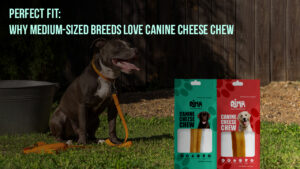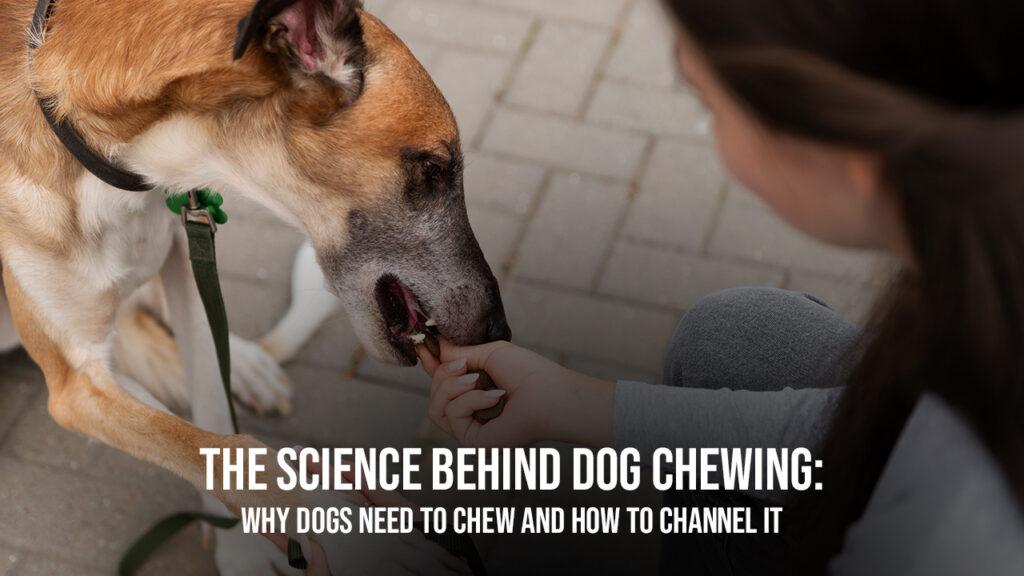

The Science Behind Dog Chewing: Why Dogs Need to Chew and How to Channel It
- Pima Pet
- September 30, 2023
- 9:23 am
- No Comments
Dogs are often seen enthusiastically gnawing on a chew or playfully shredding a squeaky plushie. To us, it might look like just another canine pastime, but there’s a lot more to dog chewing than meets the eye. In this comprehensive guide, we will delve into the fascinating world of why dogs chew and how to ensure this behavior is both beneficial and manageable.
The Canine Chewing Instinct
A Throwback to Their Ancestral Roots
Before dogs were domesticated, their wild ancestors had to rely on their jaws for survival. Chewing was not just a leisurely activity but a means to an end. Wolves, from which modern dogs descended, had to use their powerful jaws to hunt, tear apart prey, and maintain their dental health. This instinct to chew is deeply ingrained in their DNA.
Stress Relief and Anxiety Management
While dogs have evolved significantly from their wolf ancestors, their need to chew persists. Chewing is a natural stress reliever for dogs. When they chew, their brains release endorphins, which help them relax and alleviate anxiety. This is particularly important for dogs that are left alone for extended periods or experience separation anxiety.
The Benefits of Chewing
Dental Health
One of the most significant benefits of chewing for dogs is its positive impact on their dental health. Chewing on appropriate items like dental chews or bones helps remove plaque and tartar from their teeth, reducing the risk of dental diseases. It also massages their gums, promoting overall oral hygiene.
Mental Stimulation
Chewing is not just a physical activity; it engages a dog’s mind as well. Figuring out how to approach a hard cheese chew can be a mentally stimulating puzzle for them. This mental exercise is crucial for keeping their cognitive abilities sharp, especially as they age.
Channeling the Chewing Energy
Choose the Right Chew
Choosing the right ones can keep them happy and healthy. Rawhide and other synthetic chews can be hard on their digestive system, while bully sticks and pig ears can be high in fat. So what’s the solution? Try our all-natural chews made from free-range, grass-fed cattle. They’re long-lasting, low in fat, and perfect for satisfying your furry friend’s chewing needs.
Supervision Matters
Not all hard chews are created equal and some can pose safety risks for your pup. That’s why proper supervision matters. We recommend checking out our new selection of hard cheese chews, specifically designed with your canine’s safety in mind. Our chews are made with high-quality ingredients and are sure to keep your pup happy and healthy. Plus, with proper supervision, you can rest easy knowing that your furry friend is in good hands. Shop now and give your pup the best hard cheese chew around!
Training and Positive Reinforcement
If your dog tends to chew on items they shouldn’t, like your shoes or furniture, it’s essential to address this behavior through training and positive reinforcement. Correct them gently and redirect their chewing energy towards their chews. Reward them when they choose the right items to chew on.
Conclusion
In conclusion, understanding the science behind dog chewing is crucial for responsible pet ownership. Dogs chew not only because it’s a natural instinct but also because it provides them with essential physical and mental benefits. By selecting appropriate chews, supervising your dog, and implementing positive reinforcement, you can channel their chewing energy in a productive and enjoyable way. So, the next time you see your furry friend gleefully gnawing on a chew, know that they are not just having fun; they are also taking care of their well-being.


